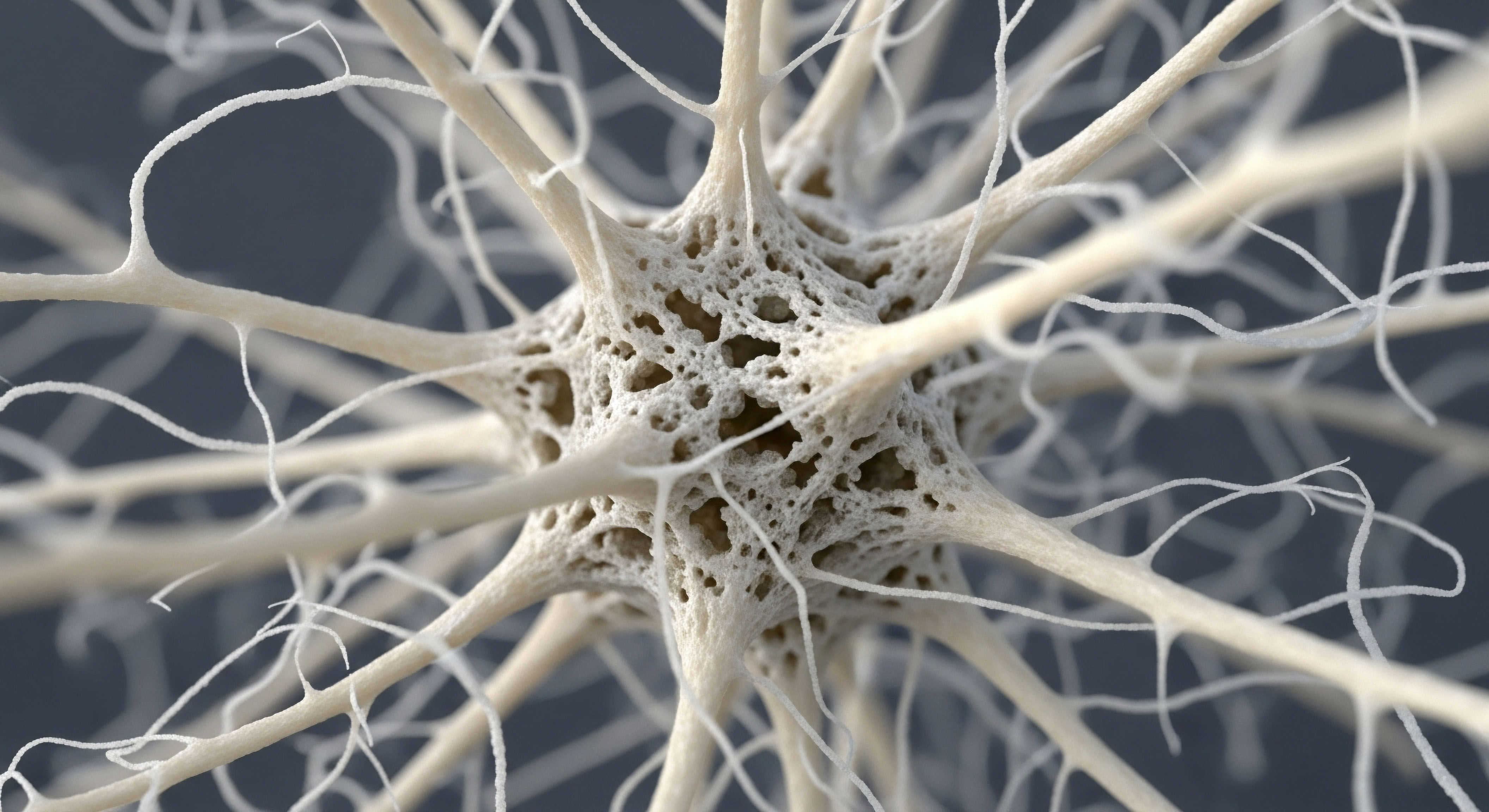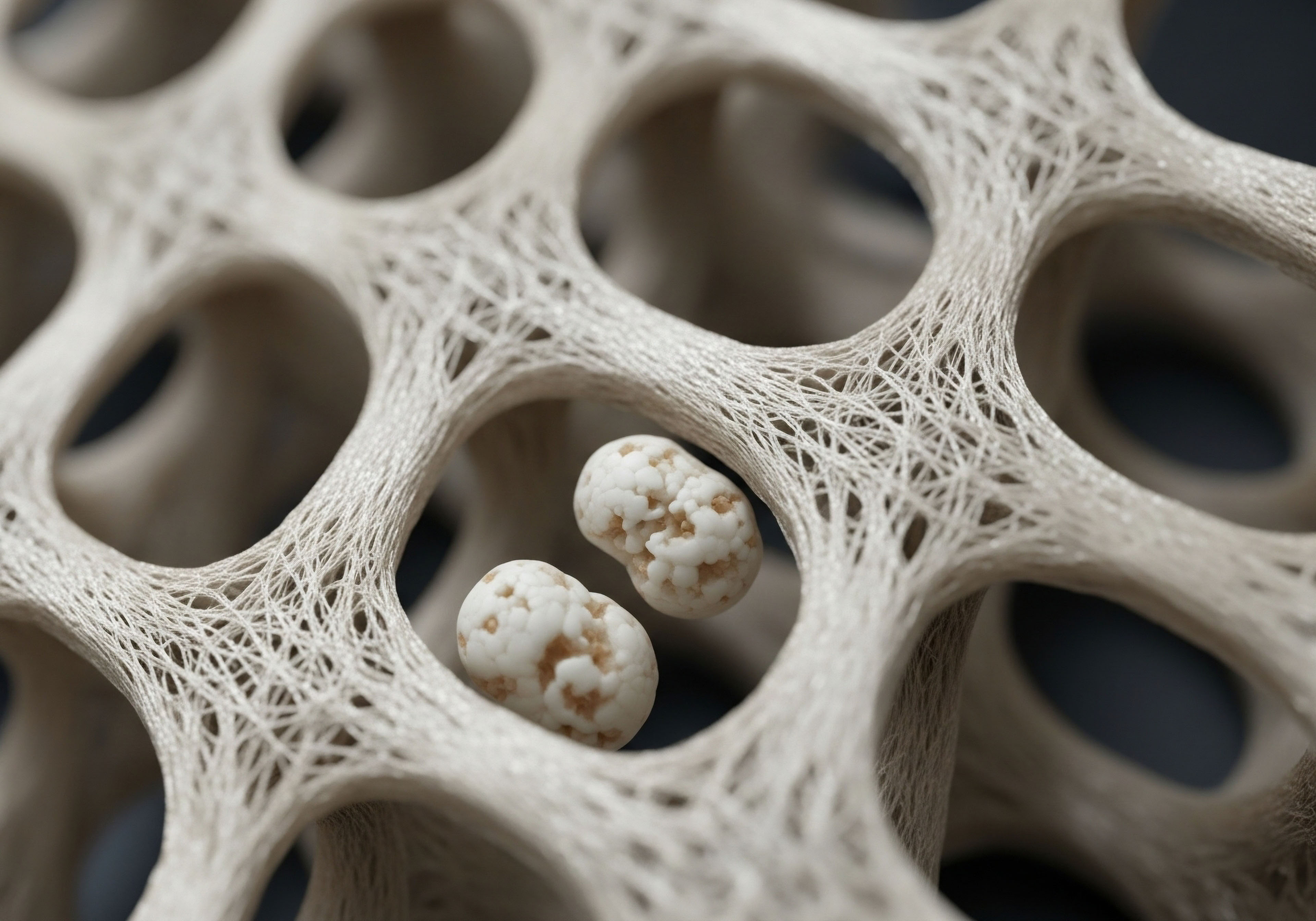

The Sun’s Primacy in Orchestrating Cellular Excellence
The celestial body that governs our planet’s cycles serves as the fundamental architect of biological timing, extending far beyond its role as a mere source of light and warmth. Understanding this intrinsic connection is the first step in mastering cellular excellence.
Our biology operates on deeply ingrained rhythms, honed over millennia, that dictate everything from gene expression to metabolic flux. These rhythms, collectively known as circadian rhythms, are predominantly synchronized by the predictable patterns of sunlight. This external cue, the sun’s rise and set, provides the master clock signal that aligns our internal biological clocks with the environment.

The Master Clock and Cellular Symphony
At the core of this biological synchronization lies the suprachiasmatic nucleus (SCN) in the hypothalamus, the body’s master circadian pacemaker. Light, particularly specific wavelengths perceived by the retina, directly signals the SCN, initiating a cascade of neuroendocrine events. This signal transmission ensures that cellular processes are optimally timed to coincide with periods of activity and rest, resource availability, and environmental conditions. When this fundamental synchronization is disrupted, cellular functions become desynchronized, leading to suboptimal performance and increased susceptibility to dysfunction.

Light as the Primary Architect of Biological Rhythms
Sunlight exposure, especially in the morning, is essential for setting the circadian clock. This exposure suppresses melatonin production, a hormone associated with darkness and sleep, and promotes the release of cortisol and other wakefulness-promoting hormones. This precise hormonal signaling dictates wakefulness, alertness, and the readiness of cellular machinery for daily tasks.
Darkness signals the body to prepare for rest and repair, initiating melatonin production and downregulating energy-intensive processes. Disruptions to this light-dark cycle, common in modern lifestyles, lead to what is termed circadian misalignment, a significant contributor to cellular stress and reduced efficiency.

Hormonal Cascade Orchestrated by Solar Cycles
The sun’s influence extends deeply into our hormonal landscape. Testosterone production in men, for instance, exhibits diurnal variation, with levels typically peaking in the morning. This rhythm is influenced by the light-dark cycle and the resulting pulsatile release of gonadotropin-releasing hormone (GnRH) from the hypothalamus.
Similarly, other critical hormones, including growth hormone, thyroid hormones, and even the body’s response to insulin, are modulated by circadian timing. Mastering cellular function requires respecting and aligning with these natural hormonal rhythms, ensuring that hormonal support is available when and where it is most needed for cellular maintenance, repair, and energy production.

Mitochondrial Resonance and Energy Mastery
Mitochondria, the powerhouses of the cell, function as dynamic organelles subject to circadian regulation. Their efficiency in producing adenosine triphosphate (ATP), the cell’s energy currency, fluctuates throughout the day. This fluctuation is linked to the expression of genes involved in mitochondrial respiration and biogenesis, which are themselves under circadian control.
Aligning daily activities, nutrient intake, and rest with natural light cycles supports optimal mitochondrial function, enhancing energy availability and cellular resilience. Cellular excellence is intrinsically tied to the precise and efficient operation of these energy-generating units, a process directly influenced by our connection to the sun’s command.
Studies indicate that disruptions to circadian rhythmicity are associated with a 30% increase in mortality risk across various chronic diseases, highlighting the significant impact of temporal alignment on cellular health.


Engineering Your Cellular Command Center
Achieving cellular excellence is a deliberate act of engineering, a precise recalibration of biological systems to function at their zenith. This involves understanding the intricate mechanisms that govern cellular health and implementing targeted strategies that align with our innate biological programming. It is about moving beyond passive existence to active mastery of one’s internal biochemical environment, leveraging scientific insights to build a resilient and high-performing cellular infrastructure.

Engineering Optimal Cellular Environments
The creation of an optimal cellular environment is a complex endeavor. It begins with recognizing the body as a complex, interconnected system where hormonal balance, metabolic efficiency, and cellular repair pathways must be harmonized. This requires a strategic approach that addresses the foundational elements of cellular function, ensuring that each component operates with maximum efficacy.

Hormonal Recalibration for Peak Function
Hormone optimization forms a cornerstone of cellular command. Hormone optimization focuses on restoring natural physiological ranges and ensuring pulsatile release patterns are respected, rather than artificially inflating levels. For men, this often involves optimizing testosterone levels, which directly impacts energy, mood, cognitive function, and muscle synthesis.
For women, balancing estrogen, progesterone, and testosterone is critical for metabolic health, bone density, and overall vitality. Thyroid hormones, essential for regulating metabolism at the cellular level, also require careful attention. These hormones act as master regulators, signaling to cells how to process energy, build tissue, and maintain homeostasis. Precision in assessment and intervention is paramount, often utilizing bioidentical hormone replacement therapy (BHRT) when physiological deficiencies are identified, guided by comprehensive biomarker analysis.

Peptide Signaling for Cellular Regeneration
Peptides, short chains of amino acids, serve as essential signaling molecules within the body, orchestrating a vast array of biological processes. Certain therapeutic peptides offer powerful avenues for enhancing cellular repair, regeneration, and overall vitality.
For instance, growth hormone secretagogues like Sermorelin and Ipamorelin stimulate the pituitary gland to release growth hormone, which is essential for tissue repair, muscle growth, fat metabolism, and immune function. Other peptides, such as BPC-157, have demonstrated remarkable effects in accelerating the healing of various tissues, including the gut, muscles, and ligaments. These peptides act as sophisticated biological messengers, delivering precise instructions to cells to enhance their functional capacity and resilience.

Metabolic Precision ∞ Fueling the Engine
Cellular energy production is intrinsically linked to metabolic health. Optimizing how the body utilizes fuel ∞ glucose, fats, and ketones ∞ is key to sustaining high levels of cellular function. This involves enhancing insulin sensitivity, ensuring efficient glucose uptake and utilization by cells, and promoting metabolic flexibility, the ability to switch seamlessly between fuel sources.
Strategies include timed nutrient intake, macronutrient manipulation, and leveraging periods of fasting to improve cellular responsiveness to metabolic signals. Supporting mitochondrial respiration, the primary pathway for ATP generation, through targeted nutritional support and exercise protocols ensures that cells have the energy required for all their complex tasks.

The Art of Cellular Repair and Resilience
Beyond energy production, cellular excellence demands robust repair and defense mechanisms. Autophagy, the cell’s intrinsic recycling process, clears out damaged components and regenerates cellular structures. Enhancing autophagy through strategies like intermittent fasting and specific phytochemicals is vital for preventing the accumulation of cellular debris that contributes to aging and disease.
Furthermore, protecting cellular DNA from damage, supporting telomere length, and managing oxidative stress are critical for long-term cellular integrity and function. These processes collectively build cellular resilience, enabling cells to withstand stress and maintain optimal performance over time.
Clinical data shows that optimizing endogenous testosterone levels in men can improve lean body mass by up to 10-15% and reduce fat mass by 5-10% within 6-12 months, demonstrating direct physiological impact.
The integration of these elements ∞ hormonal recalibration, peptide signaling, metabolic precision, and cellular repair ∞ creates a synergistic effect. Each component supports and enhances the others, leading to a profound upgrade in cellular function. This is the essence of engineering cellular excellence ∞ a precise, science-backed approach to unlocking the body’s highest potential.


Strategic Timing for Biological Supremacy
The efficacy of any biological intervention is significantly influenced by its timing. Our physiology operates within intricate temporal frameworks, from the rapid oscillations of neurotransmitters to the slow, generational shifts in hormonal profiles. Mastering cellular excellence, therefore, necessitates a deep understanding of these chronobiological principles, ensuring that strategies are deployed at the optimal moments to maximize their impact and align with the body’s natural rhythms.

Strategic Deployment for Sustained Vitality
Timing is not merely an adjunct to biological optimization; it is a fundamental component. Applying interventions at the correct phase of the circadian cycle, the hormonal milieu, or the body’s repair phases can exponentially amplify their benefits. Conversely, mistimed interventions can lead to diminished returns or even adverse effects. This section outlines the critical temporal considerations for commanding cellular excellence.

Daily Rhythms the Foundation of Cellular Command
The most immediate and impactful temporal framework is the daily circadian rhythm. Light exposure upon waking, for instance, is essential for anchoring the master clock. This signal initiates a cascade that primes the body for daytime activity, optimizing hormone release, metabolic processes, and cognitive function.
Nutrient intake should ideally align with periods of higher metabolic activity and insulin sensitivity, typically during daylight hours. Evening, as darkness descends, signals the body to transition towards repair and recovery. Melatonin production increases, and cellular processes shift towards regeneration and waste removal. Consistent adherence to this diurnal pattern is foundational for cellular health.

Lifespan Cycles Hormonal Transitions and Interventions
Beyond the daily cycle, longer-term biological rhythms and transitions dictate the strategic application of certain interventions. As individuals age, natural hormonal decline occurs, necessitating different considerations for optimization. For men, declining testosterone can impact muscle mass, energy, and cognitive function, often warranting a discussion around testosterone replacement therapy (TRT) in the context of age-appropriate physiological levels.
For women, perimenopause and menopause bring significant hormonal shifts that affect metabolism, bone health, and cardiovascular risk, making timely hormonal support and metabolic management critical. Understanding these phases of life allows for proactive and precisely timed interventions that support cellular integrity and function through these natural transitions.

Performance Peaks Tactical Optimization Windows
For individuals focused on peak physical and cognitive performance, identifying and leveraging specific temporal windows for intervention is key. For example, post-exercise recovery protocols, including nutrient timing and specific peptide applications, are most effective when initiated within a short window following intense physical exertion.
Similarly, cognitive enhancement strategies might be timed to coincide with periods of peak alertness dictated by circadian rhythms or specific neurochemical profiles. The strategic use of peptides, such as those aimed at muscle repair or energy metabolism, requires an understanding of their pharmacokinetic profiles and optimal administration times relative to training or recovery demands. This precision in timing transforms interventions from general health practices into tactical advantages for performance enhancement.
Clinical practice guidelines suggest that initiating hormone replacement therapy during the peri-menopausal period can mitigate bone loss and reduce the risk of osteoporosis by up to 50% compared to untreated individuals.
The integration of daily, life-stage, and performance-specific timing creates a sophisticated strategy for cellular command. By respecting and leveraging these temporal dynamics, individuals can achieve a level of biological optimization that is both profound and sustainable, ensuring their cellular machinery operates in perfect synchrony with their environment and their goals.

The Inner Sun a Command for Perpetual Radiance
The external sun is a powerful conductor, but the true orchestra resides within. Mastering cellular excellence is the art of harmonizing your internal biological symphony with the grand cosmic rhythms, ensuring that each cell vibrates with optimal energy and purpose.
It is the proactive stewardship of your biological architecture, a commitment to living at the pinnacle of your inherent potential. This journey is not about resisting time, but about mastering its flow within your own biology, becoming the architect of your enduring vitality and unwavering performance. The ultimate command is not from without, but from within ∞ a self-governed state of peak cellular existence.

Glossary

mastering cellular excellence

mastering cellular

mitochondrial function

cellular excellence

cellular function

cellular repair

cellular command




